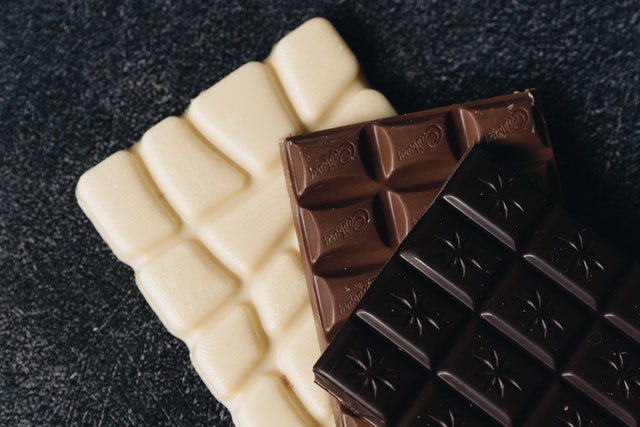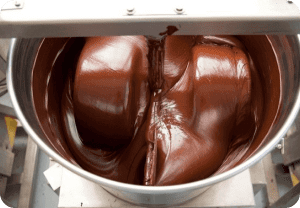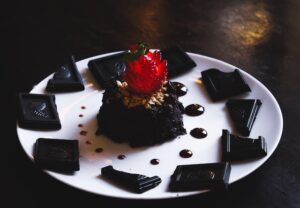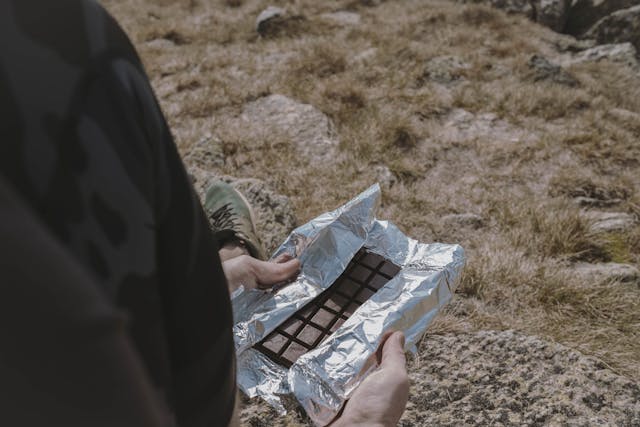
Major Effects of the Bantu Peoples Migration
April 2, 2023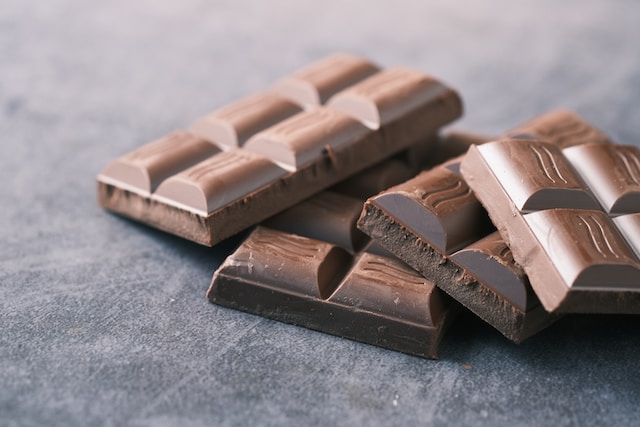
5 Big Differences Between Bean to Bar and Tree to Bar Chocolates
June 26, 2023How Do You Know if Chocolate is Vegan?
A Guide to Vegan Chocolate
How do you know if a chocolate bar is vegan? The answer is simple: check the ingredients, especially the type of sugar and milk used to make the chocolate.
Chocolate comes from cacao, the seed of the chocolate tree known as Theobroma cacao. While ‘pure’ chocolate is plant-based, many types and brands of chocolate contain dairy milk or sugar processed with animal by-products that are not considered vegan-friendly.
To know if chocolate is vegan, check labels for certified-organic cane sugar, raw cane sugar, or sugar made from plant sources like beets or monk fruit. No animal honey, too.
For milk chocolates, you want to see if the product contains plant-based milks like soy milk, coconut milk, rice milk, etc., in place of milk from animals.
This guide offers you in-depth knowledge about types of chocolates and how you can tweak traditional recipes to make vegan chocolates. You’ll also find where and how to buy vegan chocolate.
That said, let’s start from the very beginning with how chocolate is made.
Summary of How Chocolate is Made
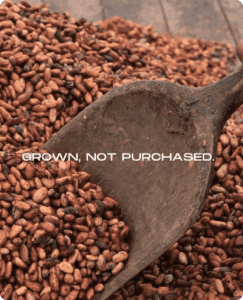
We farm our own cacao in Cameroon and craft tasty ethical chocolate bars in London
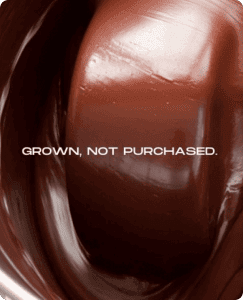
We farm our own cacao in Cameroon and craft tasty ethical chocolate bars in London
The basic ingredients in chocolate are cacao powder (cocoa powder) and cacao butter (cocoa butter) which all come from the cacao fruit.
When the cacao fruit ripens, the farmer harvests the pod and removes its seeds, ferment them, and dries them, usually under the sun. Cocoa buyers then get the dried beans to factories. Sometimes, the cocoa farmer is also the chocolate maker. If you’ve not heard of tree-to-bar chocolate makers, that’s when a chocolate maker farms their own cacao.
At the chocolate factory, the dried beans are cleaned of debris, roasted, cracked and winnowed, then ground into a paste called cocoa liquor.
At this stage, the liquor can be pressed to get cocoa butter and cocoa powder or used directly for chocolate making.
If chocolate was the goal of roasting and grinding the beans, the liquor is mixed with other ingredients. Two common ingredients are an emulsifier like soy lecithin and a sweetener, which is often sugar. The mixture is then conched, tempered, and moulded into bars.
That’s the basic process. Individual brands have their ‘secret sauce’ of creating yummy melt-in-the-mouth chocolate, so equipment, recipes and ingredients vary. And that variation in ingredients is the reason you need to check labels to ensure you’re getting vegan chocolate.
Also note that several factors influence cocoa bean quality. Cacao variety, origin, cultivation and processing techniques, and storage all contribute their quota in the quality of your final bar.
Some chocolatiers and chocolate makers may add unique ingredients to make their product palatable and cost-effective. These may include artificial flavours, cocoa butter substitutes, and preservatives.
Usually, the more the ingredients, the lower the quality of chocolate.
What is Vegan Chocolate and What are the Ingredients?
Vegan chocolate is chocolate that contains only plant-based ingredients where none of the plant-based ingredients was processed with animal by-products. Some cane sugars are refined using carbo animalis, commonly known as bone char from charred animal bones. Thus, these sugars are not vegan-friendly.
Basic ingredients for vegan chocolate are cocoa liquor (cocoa powder and cocoa butter) plant milk, plant source emulsifier, and certified-organic or raw cane sugar.
Vegan chocolates come in different types, just like traditional chocolates. Dark, white, milk, hot chocolate.
-Vegan dark bars commonly have cacao powder, cocoa butter, soy lecithin as an emulsifier, and organic or raw cane sugar for sweetening.
-White vegan chocolate excludes cacao powder.
-Vegan milk chocolates contain dairy-free milk types.
-Vegan hot cocoa is plain hot cocoa without animal milk for cream.
Is Vegan Chocolate Healthy?
Vegan chocolate should have the health benefits of traditional chocolate since these benefits come from cocoa. And I must add, vegan chocolate should also have the downsides to eating too much chocolate. As with every other food, eat with moderation, and limit products high in sugar and calories.
Packed with antioxidant, minerals, and nutrients, chocolate provides many health benefits. Improves blood flow, lowers blood pressure, regulates cholesterol levels, reduces the risk of heart disease, improves brain function and prevents degenerative diseases like Alzheimer, and may lower the risk of some cancers.
There’s some argument that because vegan chocolate lacks animal milk—and therefore no cholesterol — it is healthier than traditional chocolate. Bad cholesterol increases the risk of heart disease, stroke, and heart attack.
However, the amount of bad cholesterol in milk chocolate is too minimal to be considered harmful. Additionally, the flavanols in cocoa help raise good cholesterol levels while shielding the bad cholesterol from being oxidised. Unoxidised bad cholesterol cannot cause atherosclerosis. Atherosclerosis is a disease that causes fatty deposits in the inner walls of arteries, which can lead to blot clots, heart attacks, and strokes.
Choosing vegan chocolate may not add significant health benefits above what you’d get from traditional chocolate. But it’s a safe way of indulging chocolate that aligns with your reasons for going or staying vegan.
Questions About Types of Chocolate and Whether They’re Vegan
We have answered more questions in this section to help you know if a chocolate is vegan or not.
Is Milk Chocolate Vegan?
Unless the milk you’re referring to is plant-based milk like soy milk, coconut milk, almond milk or another dairy-free substitute. Makers of vegan chocolate are usually transparent about their ingredients. Plain milk chocolate without qualification is not vegan as it contains cow’s milk.
Although dairy chocolates are the most popular type of chocolate, finding dairy-free milk chocolates shouldn’t take you forever. There are recipes for vegan chocolate you can try at home or you can just get our ready-to-munch award-winning vegan milk chocolate. We craft the bar with coconut milk, cocoa butter, and raw cane sugar.
We also farm our cocoa sustainably, so you know you’re not getting your treat at the expense of forced labour or from the sweat of poor farm workers.
Is Dark Chocolate Vegan?
Yes and no.
To elaborate that answer, let’s answer this other question. What is dark chocolate?
This is chocolate containing mainly cacao solids (powder or nibs), cacao butter, and sugar. Little or no milk.
Image of dark bar
100% dark chocolate is considered vegan because it has no other ingredient than cacao solids and butter. However, some manufacturers classify their chocolate as 100% dark when it contains milk. For example, Lindt labels its Excellence Dark 100% Cocoa Chocolate Bar as ‘may contain milk’ in the allergens section.
This only emphasises why you should check product labels for ingredients and allergens. If you see dairy milk, it’s not vegan. If you spot cholesterol levels, know that the chocolate contains animal products, since only animals have cholesterol.
Dark chocolate bars come in various percentages as different brands create their products with varying cacao content. At Bantu Chocolate, we have dark vegan bars crafted as 55%, 66%, 83% cacao, some with spices and nuts! The higher the percentage, the healthier the bar because it contains more antioxidants, more cacao nutrients, and less sugar.
You might think that the darker the chocolate, the more cacao content. That’s not always true. Dutched or alkalised cocoa solid is darker but contains less cacao and flavanols. Producers treat cocoa powder or liquor with an alkali to raise the PH and reduce bitterness. Always look for cacao content percentage, not just colour. On product labels, you should see something like “cocoa treated with alkali.”
Check out our dark vegan chocolates.
Is White Chocolate Vegan?
Most of us know chocolate from its characteristic dark brown colour. That colour comes from cacao solids, which are just about half of the cocoa bean. The other half is cocoa oil, also known as cocoa butter.
Cocoa butter is an almost flavourless ingredient that helps suspend and lubricate cocoa solids in chocolate liquor during conching and tempering stages. Cocoa butter is responsible for chocolate melting in the mouth. Manufacturers can manipulate the amount needed in a bar for varying melt-in-the-mouth experiences.
White chocolate is a dark bar recipe without the brown cocoa solids. Some people don’t consider white bars as true chocolate.
Image of white bar
So is white chocolate vegan? It depends on whether that random white bar you picked up from the shelf has milk or non-vegan sugar. Many recipes for white chocolate contain powdered cow’s milk.
Vegan labels swap non-organic sugar and milk with vegan substitutes like coconut sugar, monk fruit powder, powdered erythritol, coconut milk powder, soymilk powder, or a host of plant-based alternatives.
Is Hot Chocolate Vegan?
Hot chocolate aka Hot Cocoa is drinking chocolate brewed usually with cocoa powder, and other ingredients, like sweeteners and creamers. In its purest form, it is the earliest type of chocolate invented by the ancient Mayans and Aztecs long before the British company, Fry & Sons, created the first solid chocolate bar.
Like any form of chocolate, consumers can mix hot chocolate with various ingredients, spices, and flavourings to suit individual taste buds. So whether hot chocolate is vegan lies in the age-old answer about the ingredients used in that particular product.
The minimalist baker makes vegan hot chocolate with four simple ingredients:
1. Unsweetened vanilla or plain almond milk
2. Unsweetened cocoa powder
3. Dairy-free semisweet or dark chocolate
4. Raw sugar or stevia
It’s a simple procedure you can follow to make delicious vegan hot cocoa at home. For a very nutritious brew, get our natural, unsweetened cacao powder for a start.
How and Where to Buy Vegan Chocolate
Animal exploitation is not the only reason people choose veganism. There are also ethical and environmental reasons.
So when searching for vegan chocolates, don’t just look at the ingredient and allergen labels to rule out cow’s milk or bone char-processed sugar. Also look for evidence that the chocolate maker sources ethically farmed cocoa that respects human rights, provides a living wage for the farmer, and employs sustainable agriculture practices.
Fair Trade and direct trade are cocoa sourcing methods that seek to ensure consumers get chocolate that helps both the farmer and the environment flourish together. Although that’s not always a guarantee of true fair trade and quality product, it’s a safer place to start.
The vegan chocolate market is expected to grow. And producers are making sure vegans don’t have to wade through bones and other animal products to get their treat. Many online stores and offline craft chocolate makers and retailers have nutritious dairy-free chocolates on their shelves.
We’re a fully vegan brand, crafting artisan vegan chocolates and vegan chocolate spread you’ll surely want to come back for more. We also don’t source our cocoa beans from the market. That’s because we farm our own Theobroma cacao through good agricultural practices.
READ: The Story Behind Our Cacao Products
BUY: Ethical vegan chocolates.
References
https://phys.org/news/2016-04-dark-chocolate.html
https://barandcocoa.com/pages/what-is-100-percent-chocolate
https://www.aalstchocolate.com/post/2016/11/21/chocolate-lesson-101-cocoa-butter
https://minimalistbaker.com/5-minute-vegan-hot-cocoa/
https://pubmed.ncbi.nlm.nih.gov/18625445/
.
Chocolate Extinction: Fact vs. Fiction + What Chocolate Lovers Can Do
Chocolate ExtinctionFact vs. Fiction, What Consumers Can Do Share On Facebook Twitter Email Is the world really running out of chocolate? Not really. Currently the global […]
Corporate Chocolate Gifting Ideas to Appreciate Employees and Delight Clients
Corporate Chocolate GiftingHow to Appreciate Employees & Delight Clients Share On Facebook Twitter Email When it comes to corporate gifting, a one-gift-fits-all approach just doesn't cut […]
Cacao Supper Club at Home: Guide to Tasting Chocolate, Cacao Tea, and Pulp Juice
Cacao Supper Club at HomeGuide to Tasting Chocolate, Cacao Tea, and Pulp Juice Share On Facebook Twitter Email Imagine gathering around the table with a few […]
